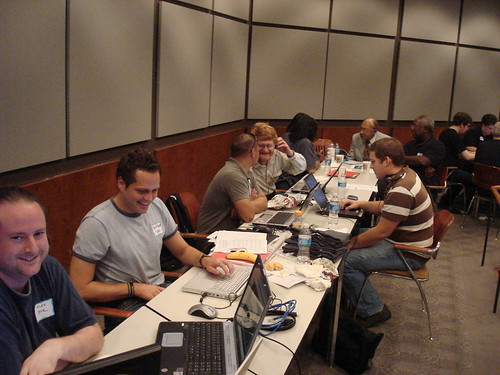 Back in September 2014, I starting whining about the lack of anything sustainable coming from most of the hackathons / hacks4good / apps4good I was seeing popping up all over in support of nonprofit organizations, government initiatives and various communities, in the USA and abroad. My whining culminated in this blog, where are the evaluations of hacksforgood / appsforgood?
Back in September 2014, I starting whining about the lack of anything sustainable coming from most of the hackathons / hacks4good / apps4good I was seeing popping up all over in support of nonprofit organizations, government initiatives and various communities, in the USA and abroad. My whining culminated in this blog, where are the evaluations of hacksforgood / appsforgood?
I’m so pleased to see this outstanding blog (IMO) by Ann Mei Chang, Executive Director at U.S. Global Development Lab at USAID, which says, in part:
“despite the potential impact, distorted incentives encourage one-off, flashy pilots (many sourced through hackathons, contests, and PR opportunities), undermining the potential for sustainable and scalable digital solutions. In fact, the proliferation of duplicative and uncoordinated mobile health applications caused an overwhelmed Uganda Ministry of Health to call a moratorium on further efforts in 2012, to ensure a focus on interoperable and sustainable systems… (in developing countries, there is) a lack of relevant platforms and infrastructure (that) means that developers end up spending the vast majority of their time rebuilding similar components from scratch, ending up with less time and money to truly innovate. Too much time and effort is wasted on duplicative work like beneficiary registration and tracking, negotiating and integrating with mobile operators, and promotion and distribution. The result is one-off systems that are fragile, unintegrated, not designed to scale, and unsustainable.
“This cannot continue. The development community needs to invest in reusable systems and the collaboration necessary to build and use these systems. This will mean smarter solutions designed for scale and sustainability.”
Right on, Ann Mei Chang & USAID!
In addition, Ben Ramalingam’s recent Institute of Development Studies blog points out that responsible digital development must also consider the risks of unintended consequences, exaggerating existing inequities, security, and repression.
USAID helped draft the Principles for Digital Development, a set of best practices for building technology-enabled programs, starting with the user. The Principles have been endorsed by over 50 development organizations, including the Bill and Melinda Gates Foundation, Sida, UNICEF, WFP, and USAID. In February, USAID launched a report based on conversations with donors, implementing partners, and development practitioners to better understand how the Principles work in real-world contexts and how we can best integrate them into our organizations.
Also see:

 In a conversation with a friend participating in
In a conversation with a friend participating in 